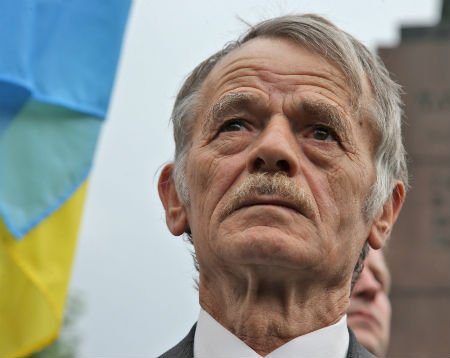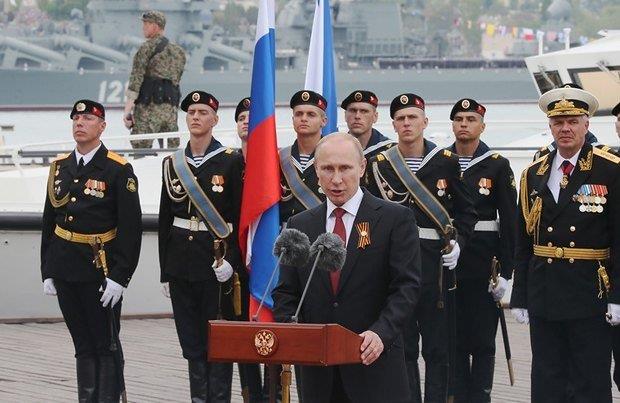Mustafa Cemilev, the longtime leader of the Crimean Tatar national movement, says that since Putin’s Anschluss “a Soviet regime has returned to the occupied territory of Crimea,” something his nation recognizes because it struggled for several decades against it for the right to return to its homeland.
But in some ways, Cemilev tells Grani.ru’s Elena Vlasenko, the situation in Crimea now is even worse than in Soviet times. In Soviet times, the authorities followed certain procedures and people counted on them. Now, the occupation forces “simply can seize people and carry them off to who knows where.”
Moreover, in Soviet times, it was impossible to publish something that was prohibited, but now, because the occupation regime hasn’t fully taken control of the situation, “it is possible to print something but then [if officials don’t like it for one or another reason] you are arrested or face enormous fines.”
After the Moscow-orchestrated “referendum,” Cemilev says, the occupation authorities took under control all of the media. They shut off all Ukrainian television channels, replacing them with Russian ones. They banned all meetings and marches. And if three people met together, they “were considered participants in illegal demonstrations and fined.”
The new rulers began to conduct searches for arms and prohibited literature, the latter being something “completely new for citizens of independent Ukraine” who “had already forgotten that such a term could exist and that it was possible to prohibit one kind of literature or another.” And they did so in a crude way that insulted the dignity of Crimeans.
Under the new order, “one can speak only good things about Putin,” Cemilev says. “If one says something bad, then the next day interrogations and threats begin.” An “atmosphere of fear” has arisen, and people are afraid to speak on the telephone especially if they want to say something about Putin or Russia.
Cemilev says that it is especially distressing to recall that Ukraine did not actively resist the Russian occupation. When Putin moved, there were only 6,000 combat-ready troops in its army, while the Black Sea Fleet in Sevastopol alone had about 20,000 fighters. Indeed, in that city alone, there were almost four times more Russian military personnel than Ukrainian soldiers in all of Ukraine.
That is part of the explanation for Ukrainian passivity, the Crimean Tatar leader says, but there is more involved than that and much of it is disturbing. When Putin sent in his “little green men,” the Russian terrorists numbered only 110 – and it would not have taken much for the Ukrainian Alpha Unit to seize and stop them.
But that unit, formed to struggle with terrorism, he reports, never got the order to proceed, and Cemilev says that one of its officers told him that “in general, we were prepared for a struggle with Crimean Tatars” rather than for anything else. Moreover, the Ukrainian security police on the peninsula almost to a man went over to the Russian side.
Crimea has no prospects as long as the occupation continues, Cemilev says. “Neither for the Crimean Tatars not for the Russian-speaking population.” The only growth industry is the Russian military, and there are no more than 40,000 Russian troops in Crimea, more than the total number of personnel in the Ukrainian army.
“Our territory has been transformed into a military base which represents a threat not only to our people and not only to Ukraine but in general to the entire world,” Cemilev says. “And therefore, the only way out is for the international community to do everything it can to achieve the most rapid liberation of Crimea and all territories seized by Russian soldiers in the eastern part of Ukraine.”
Because that is the case, he continues, many are now concerned that Europeans are saying they may lift or reduce sanctions if Russia will simply “stop advancing further in Donetsk and Luhansk oblasts and if Moscow will “observe the Minsk accords about a cease fire.”
Indeed, Cemilev says, some are beginning to joke bitterly that sometime in the future, the EU will issue a declaration promising to lift sanctions “if the Russians will stop bombing Kyiv.”








